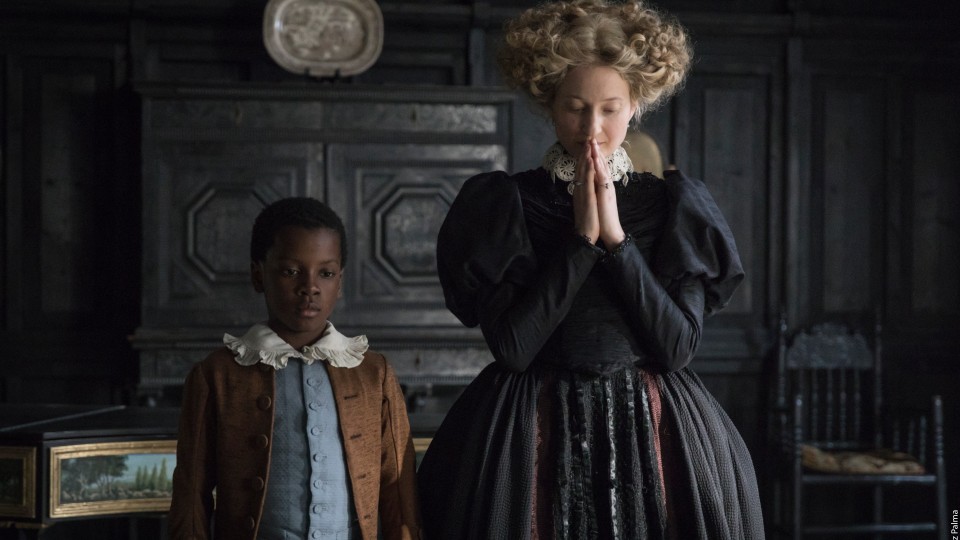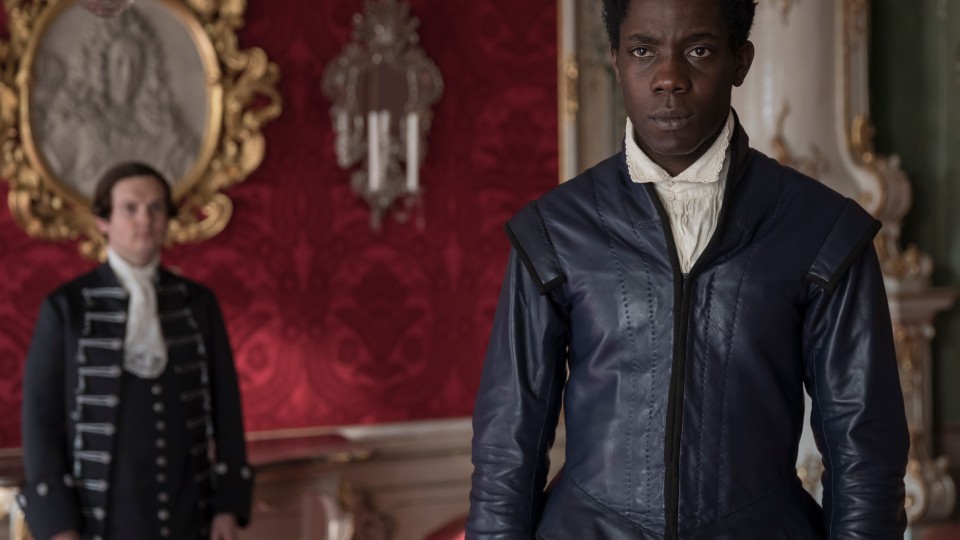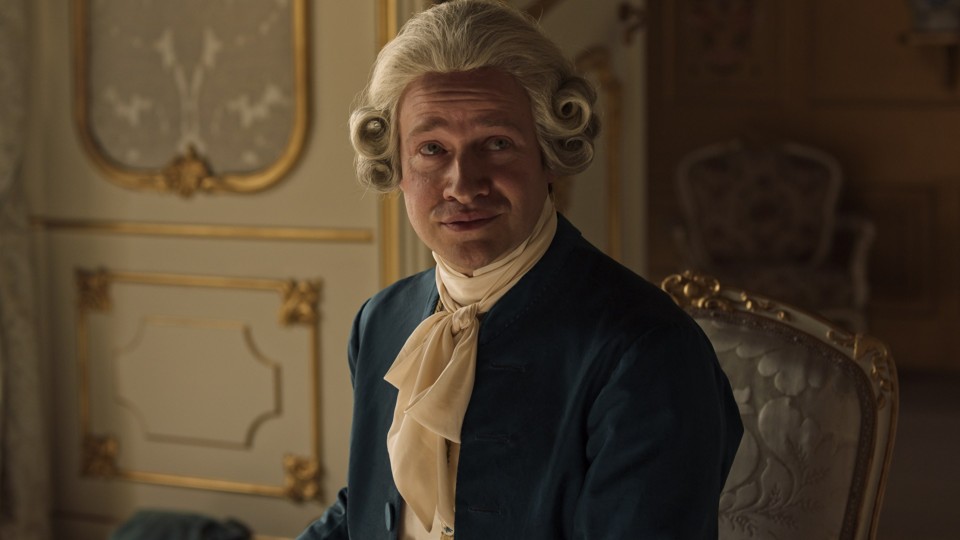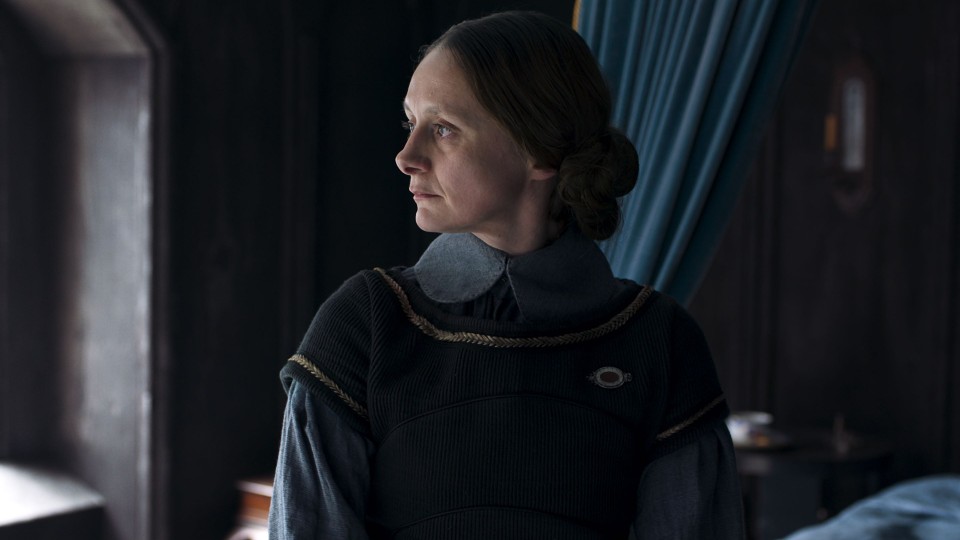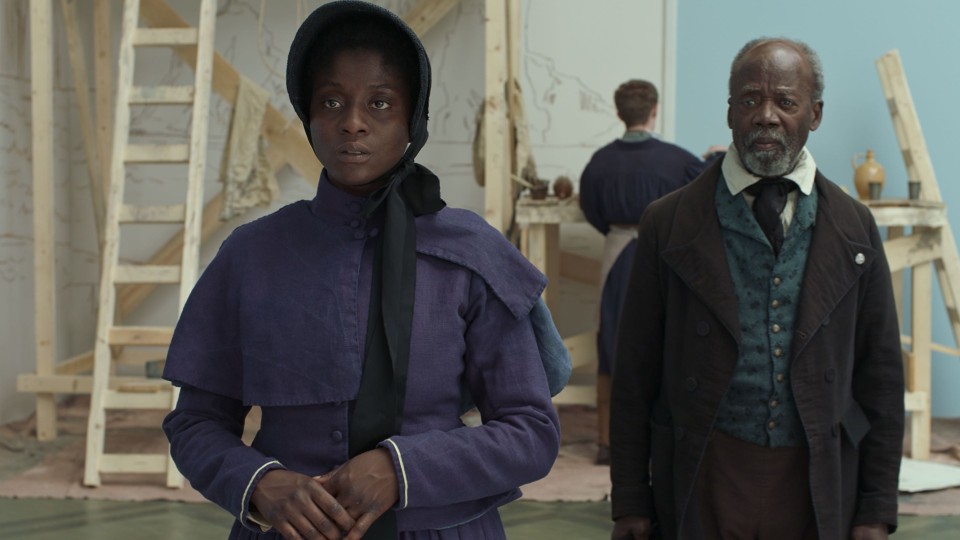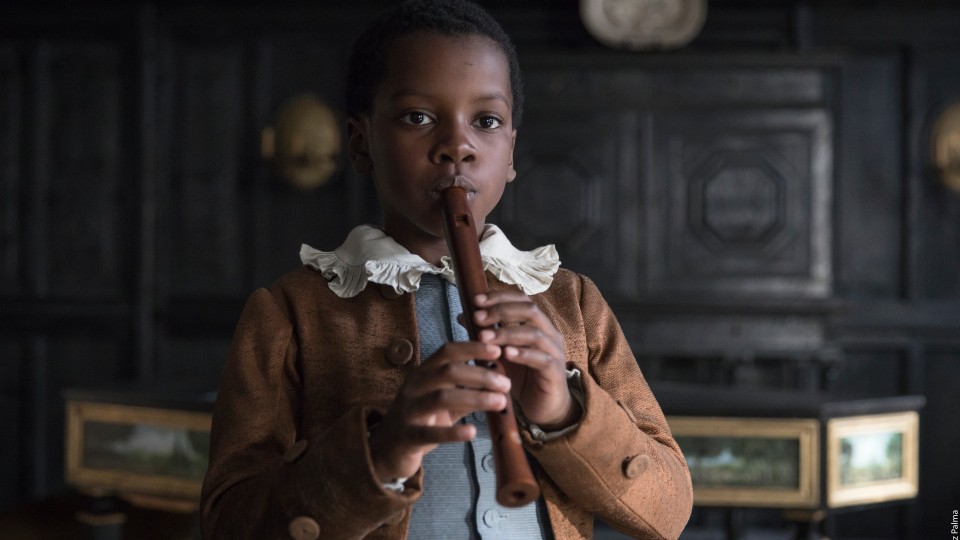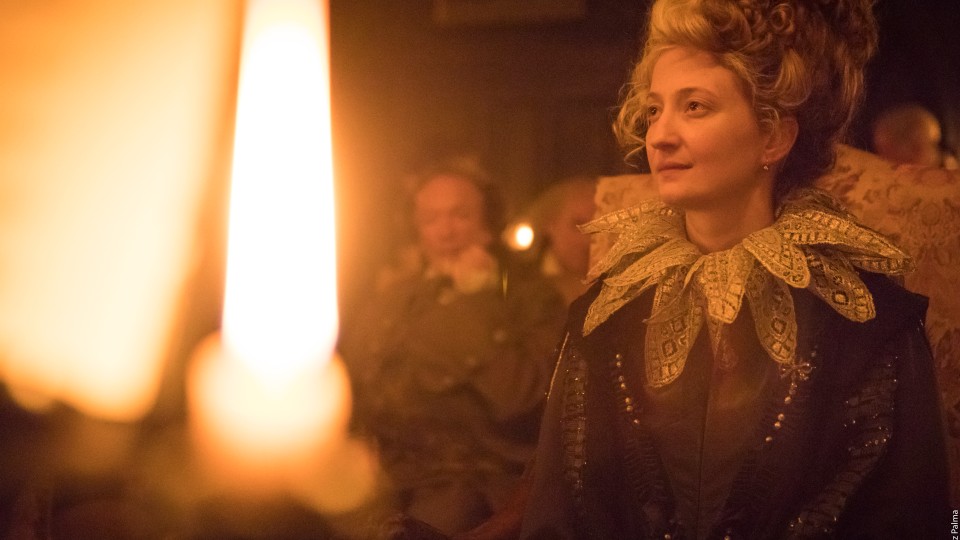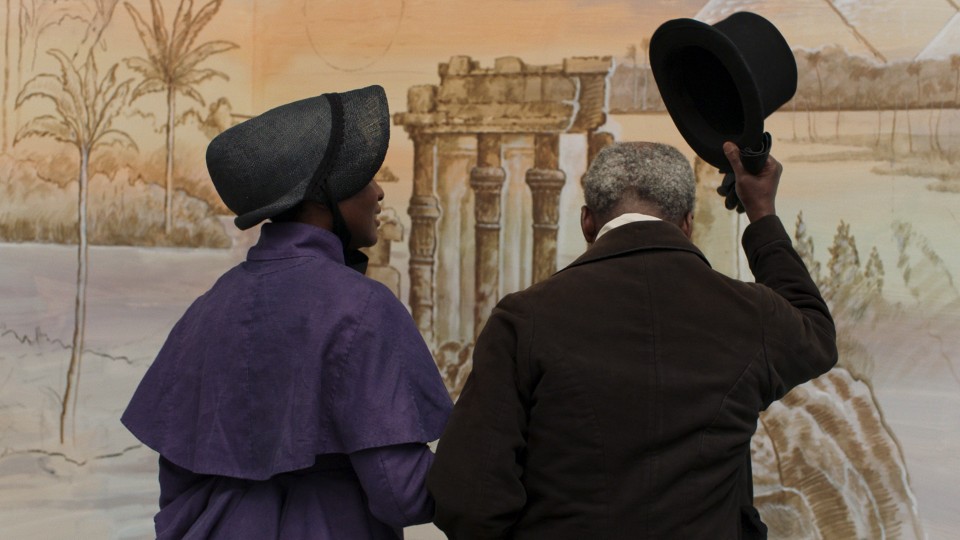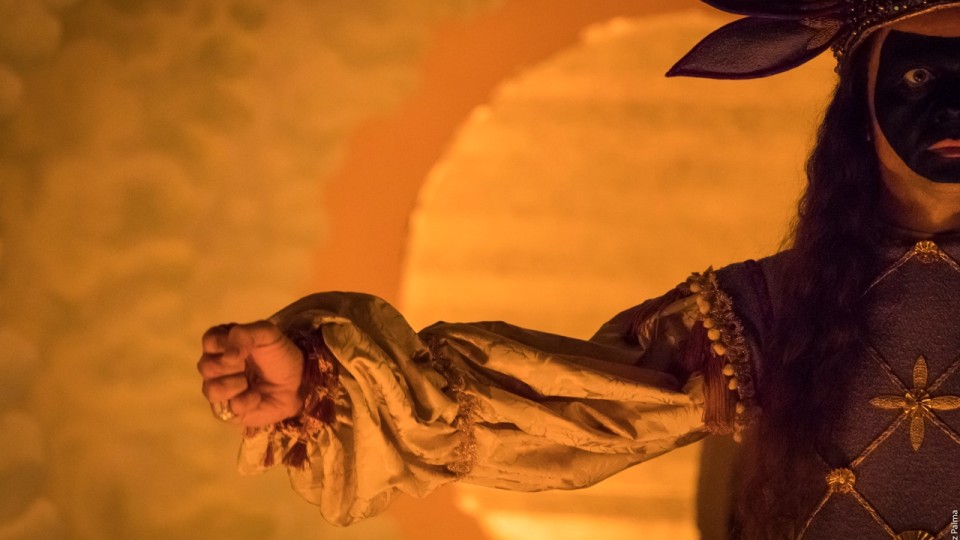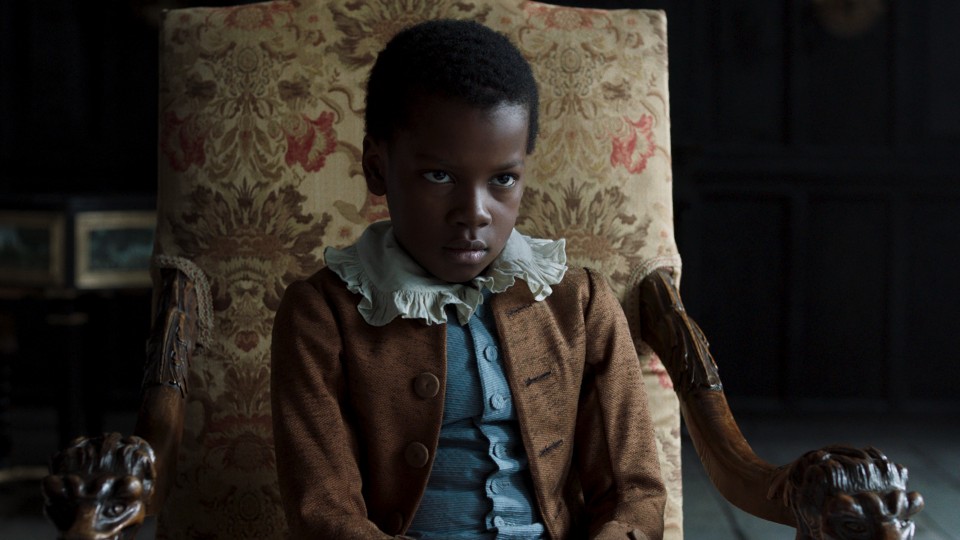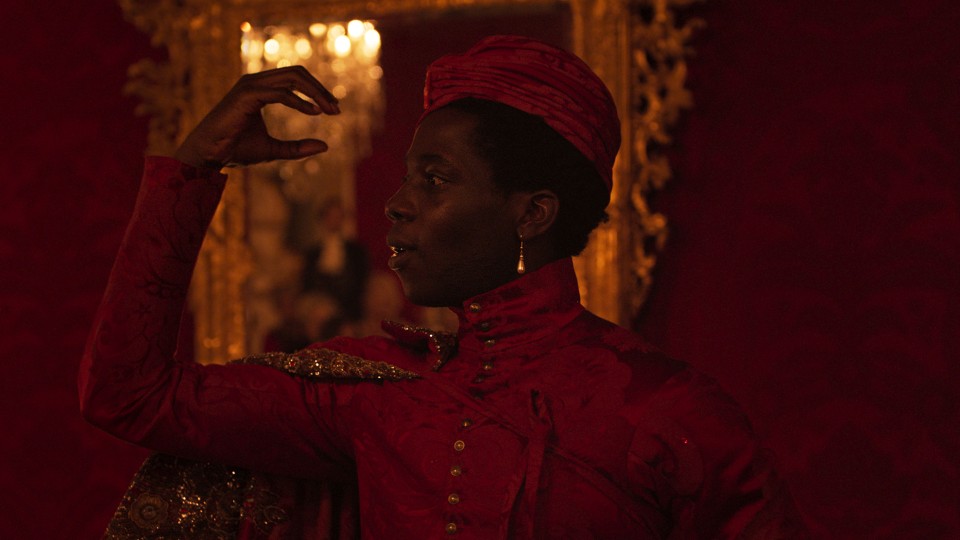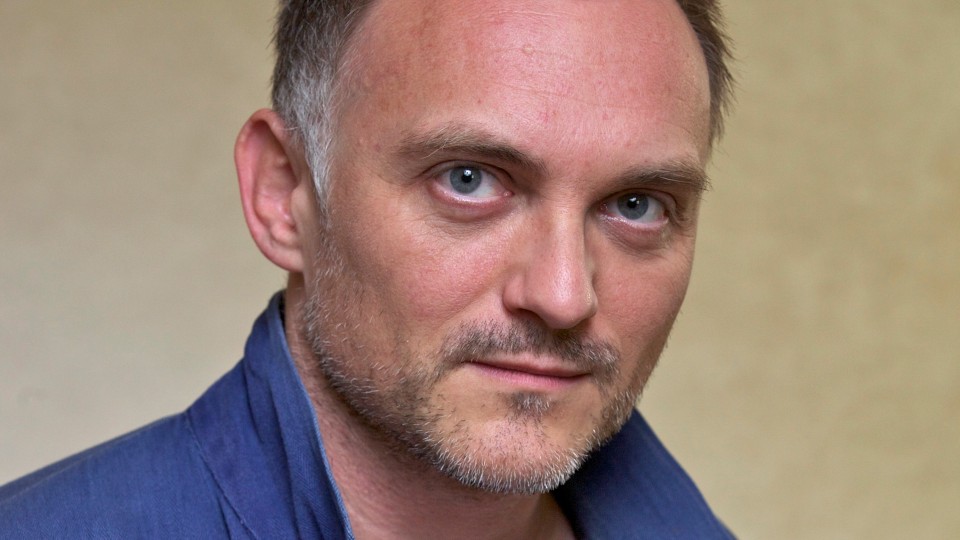Abducted from Africa as a small boy and brought to Europe, Angelo Soliman (1721–1796) makes his way into Viennese society, which acknowledges him at whim without ever truly admitting him. Markus Schleinzer utilises the fragmentary nature of this mysterious, extraordinary biography to create with his second feature film ANGELO an artistic interplay of light and shadow, projecting the thought-provoking impulses on identity and freedom into the present day.
In the first scene of ANGELO we see rowing boats coming ashore in the distance. What was the function of the "boy ships" which plied their trade in this way during the 18th century? What awaited the boys in Europe?
MARKUS SCHLEINZER: I wanted to present Angelo's European existence solely on the continent of Europe. The story begins at the moment when he first sets foot on the continent and ends when he leaves the continent again as part of his "second end". I wrote the script at a time when the refugee crisis had not yet attained the proportions that it did in 2015. Since then images of boats approaching the beaches of Europe have taken on a different significance. I have to accept that. It's ironic that just a few hundred years ago people were forced to come to Europe – while now, when they come voluntarily, they are not welcome. There were ships employed exclusively for trading in boys and girls. The children were primarily obtained for the amusement of high society. Those upper-class people wanted living examples of the curious, the abnormal, of children from distant countries. It was part of a movement to discover the exotic. They were observed and admired. However, that arrogance, that conviction of being the centre of the world isn't originally European: racism and racist attitudes, along with centralist arrogance, are rooted in every culture.
Angelo Soliman lived from 1721 to 1796. He came to Vienna during the 1740s. Not much is known about his childhood. So why was it important for you to imagine Angelo’s childhood and devote the first section of the film to it?
MARKUS SCHLEINZER: Even if I had only begun at the point where there are empirical records in the research about Angelo Soliman, that would not have exonerated me from the responsibility to think up some form of past for him. That's the fundamental problem of all documentary and scientific work: as soon as you describe something or narrate an event, you are immediately in the realm of fiction – simply due to the choices and emphasis you employ. I wanted to summarise the entire period which this person spent on the continent of Europe. And it is possible to research into the general conditions of childhood and schooling at that time. My co-writer Alexander Brom and I decided not to stick rigidly to the little that is known about Angelo Soliman; instead we took our bearings from other people's stories. At a very early stage in the writing process I decided it was important to liberate myself from the real person of Angelo Soliman. That enabled me to deal with many other themes in the fictitious lifetime of an individual person. I would rather my film brings the audience a step further than obliging them to watch one individual with his ideas and development.
The scene where the Countess chooses the boy is set in a high, neon-lit room. At some places in the film you cause the present to shine through the historical context, almost provocatively. What was your motivation there?
MARKUS SCHLEINZER: I don't believe in the concept of the historical film. None of us was there. What would be the point of making a film which is historically flawless – apart from the beauty you create in that way? If your only aim is to locate a story in the past, you reduce it, without saying anything about today. It was always apparent to me that we had to add present-day references to this story. A beautiful historical film makes me want to sit back and make myself comfortable. It makes few demands upon me, as a member of the audience. But if I sit in the Burgtheater and there is a wall of fire onstage, and then actors appear in a costume that has historical connotations, I know I'm going to be confronted with the interplay of different eras. Fracturing time like that is always an appeal to the audience: "This means you!" We just applied it in this film very discreetly.
In the first close shot of Angelo we see him being released from the layers of material he has been wearing during the voyage, as though the surface coverings were being removed to reveal his own skin. In the story of Angelo as you have devised it, his skin colour, the way his skin and his clothes conceal his innermost being, seem to have a very important role to play.
MARKUS SCHLEINZER: For me, making films is an aspect of the visual arts, and I take great delight in applying different levels, experimenting in that way. In my first film, Michael, it wasn't possible to do so, because we avoided any form of sensuality in dealing with that subject: it was about a child who was abducted and imprisoned in a cellar. In ANGELO the voluptuous images are appropriate, because they don't detract from the beautiful or the terrible aspects of the story. Angelo really did do very well for himself. A person's legacy is what subsequent generations make of him. What is the essence that the person is stripped down to after death? What will people say about him? That he did well for himself? That he did well for himself despite being black? Who or what can a person be, during which period? These questions have a quite universal fascination for me.
Alongside identity and belonging, another major theme of this film is freedom: freedom as a gift, as a punishment, as a goal, as a desire, as a chimera, whether it is for a slave or an emperor. In Joseph II you have developed an antagonist to Angelo. What does he embody?
MARKUS SCHLEINZER: I am very fond of the Emperor, because he discussed openly the three major subjects that the film deals with – home, identity and individual fulfilment – in the three conversations he had with Angelo Soliman. Joseph II was also a prisoner, after all. As a result of being born heir to the throne he also had a stigma, and due to the circumstances of their birth neither he nor Angelo could live the way they wanted to, could be anything other than what they had been destined for. I thought it was a fascinating idea to counterpoint the black servant and the first servant of the Empire, who is just as limited and constrained in his possibilities as the black man, even though they sit at opposite ends of the table due to their origins. They're both imprisoned by the situation, and for both of them personal development is only possible within clearly delineated borders. The tension here goes to the core of the whole situation. Herr Soliman also attracted admiration because he was so expensive to purchase and maintain. The star that shines so brightly also illuminates the master it serves. People like Angelo Soliman served to raise the prestige of the princes, and their sovereignty. They demonstrated what fine people their owners were. The equivalent today would be something like a seasonal status symbol, a must-have accessory without which you couldn't really be considered fashionable. In Joseph II I have a figure who performs philosophical waltzes with Angelo while at the same time reaching to the very limit of his perception. It would have been boring to shunt him off into the corner with the evil white folk.
Your images are dominated by abundance and reduction at the same time. How would you describe your goal of opulent reduction or reduced opulence in the scenes?
MARKUS SCHLEINZER: One of my premises – if it's possible to generalize after just two full-length films – is "matter of fact". I'm quickly inclined to dismiss every form of accessory as kitsch. That's why very many of the sets in ANGELO are reduced to their functionality. A corridor is a corridor. Another question which preoccupies me greatly is how to engender sensuality. How to engender images that I would actually like to drink because they look so beautiful. I found that very appealing after the arid period we went through with Michael, in terms of costumes and production design. Here we worked a great deal with layers, because we could primarily locate sensuality in the active characters. The maids wore three underskirts, an overskirt and then an apron. We researched the historical aspect with a fantastic costume expert and applied the results to the film costumes precisely, sewing them by hand. That meant as soon as the actors put on their costumes they experienced the feeling of being different. It was a fine thing to work with material which didn't perceive any limitations.
In this story, which is set in the heart of the 18th century, at the dawn of the Enlightenment, you operate with extreme lighting conditions: bright sunshine, neon light, genuine candlelight, semi-darkness. Why this extreme range of lighting, and how was it possible to achieve it?
MARKUS SCHLEINZER: I would once again simply reply: "matter of fact". As soon as we walked into the studio, I said: "We’ll use those neon tubes." Gerald Kerkletz, the cameraman, was determined to film with genuine candlelight, without any additional lighting, despite all the difficulties that implied. I entirely agreed, because once again the "fake level" would be eliminated. Who knows these days what pure candlelight means? The same thing applies to the genuine fire at the end, which we filmed in all its brute force. Digital depictions of fire have burned themselves into our criteria of visual perception to such an extent, we believe that's what fire looks like. We did a great deal of research to establish the effect of candlelight in the historical architecture through mirrors, clothing and windows. And then we applied it to the film.
Whether the story of Angelo Soliman's life is a tale of success or failure remains an open question. What would your reply to that question be?
MARKUS SCHLEINZER: The story begins with a woman who has apparently been widowed; she has the powerful desire to do something good in a Christian context. A desire which absolutely explodes. However, the film ends with a society which pretends to include Angelo but finally has to exclude him, because he still occupies the same position; it had simply been renamed. And that can't be resolved. Which is why I found it so moving that the conversation between the Emperor and Angelo remains unsettled. There is no solution to this problem. What unites us all is the fact that we are all different. It's important to recognize that. People play fast and loose with this; the concept of the other or otherness is exploited to create group identities. From the individual to the nationalist is the path of a short – and these days, short-sighted – political life.
Interview: Karin Schiefer
July 2018
Translation: Charles Osborne

